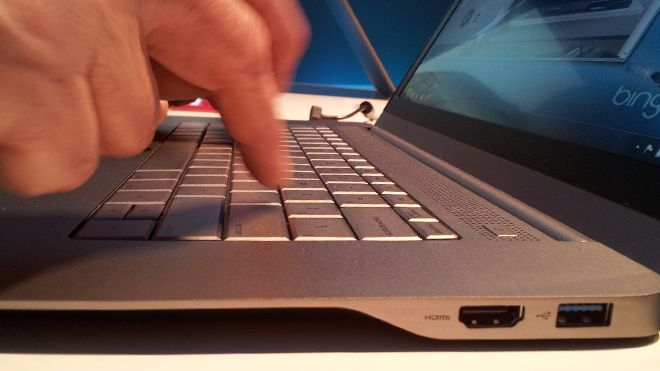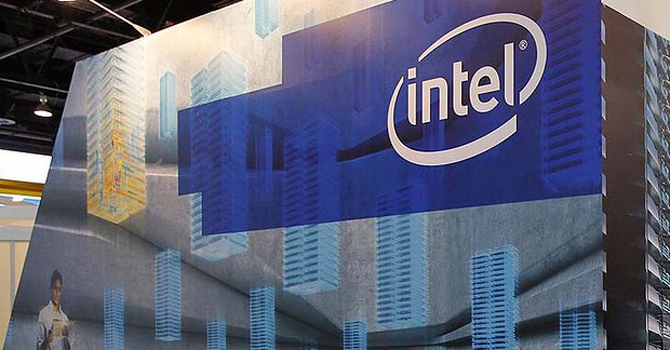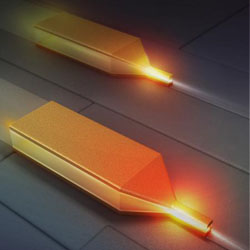- Web
- Humsa
- Videos
- Forum
- Q2A



For an industry that's based on math, science and engineering, technology sure spawns a surprising amount of myths.Some of these myths are amusing or only mildly annoying. A relative might send you a chain email claiming that Microsoft will pay you cash to forward it on. Another rumor surfaces occasionally that Facebook is going to start charging users a subscription fee.However, clinging to certain myths can cost you time and money. Let's take a closer look at these serial offenders.
1. Macs never get viruses
Last year's outbreak of the malicious Trojan called Flashback infected more than 600,000 Macs. The year before that, the fake anti-virus rogueware known as MacDefender also caused chaos for Mac users.These high-profile security breaches were a wake-up call for Mac users who believed that Apple computers were immune to the viruses that plague PC users.
Apple once boasted in its ads that Mac users could relax and let the built-in defenses of OS X do all the heavy lifting to safeguard their data. The tech giant has since toned down that message.Don’t let your purchase of a Mac lull you into a false sense of security. Like PC users, Mac users should make safe browsing and vigilant virus monitoring a top priority.Download one of the excellent -- and free -- Mac security programs in my Security Center. And keep it up to date!
2. You get what you pay for with software
Even with budget systems available, computers are a sizeable investment. Fortunately, the software you install doesn't have to add to the bill.
Modern computer users are lucky to have a vast and growing library of free, open-source software available. Open-source free software can save you hundreds or thousands of dollars over commercial programs without sacrificing essential features.
LibreOffice and Thunderbird, for example, are free programs that can effectively replace Microsoft Office and Outlook. GIMP is a popular free alternative to Adobe Photoshop.
Free software isn't about all work and no play. VLC is one of the best media players available. It will handle nearly any video or movie format you throw at it, including DVD and Blu-ray.
3. The more megapixels, the better the camera
Many consumers focus too much on megapixel count when buying cameras. A 16MP camera has to be better than a 12MP camera, right?
Not necessarily. Camera sensor quality is as much about physical sensor size as pixel amount.A large 12MP sensor in a DSLR will produce better photos than a tiny 16MP sensor in a point-and-shoot.
To cram that many pixels onto a small sensor, manufacturers shrink the size of the pixels. Smaller, crowded pixels don't capture light as well as bigger pixels spread across a large sensor. The small sensor struggles to capture the tonal range of bright scenes and generates unwanted noise when used in low light.Don't get me wrong; megapixels are important. Generally, having more megapixels leads to greater detail in images and allows you to make larger prints.But the quality of the camera's lens and its on-board image processor is also very important.
The trick to buying a camera is finding one that fits your shooting needs without overspending on technology that you may not need. My Essential Guide to Digital Cameras will help you find the camera that's right for you.
4. Password-protected public Wi-Fi is safe
I'm always urging my listeners to secure their home wireless networks to keep out hackers and criminals. Click here for detailed instructions.
Unfortunately, the same isn't true for public Wi-Fi, such as your neighborhood coffee shop or café, even if it is password-protected.
The point of a password at home is to keep hackers off the network entirely. With public Wi-Fi, hackers can access the network for the price of a cup of coffee.
Once a hacker is on the network, your laptop or mobile gadget is exposed. Any sensitive browsing you do, such as online banking, puts your information at risk of being intercepted.Some hackers even like to set up their own network with the same name as the coffee shop network. You might think you're connecting to a legitimate business network, but it's really a hacker-controlled network. That makes it even easier for them to steal your information. Even security professionals fall for this tactic!
Be wary about where you go and log in when Web browsing in public. Wait until you get home to do any online banking or shopping, or at least use a cellular connection.Want some other tips for staying safe on public Wi-Fi? Click here for my 5 simple rules.
5. Always buy new gear
Many shoppers will endure horrific lines to save 10 percent on the latest gadget, yet they shun 20- to 30-percent discounts on refurbished computers and other tech gear. The assumption is that a refurb will be faulty or buggy.
Customers do indeed return products because they didn't work correctly. But sometimes it's just buyer's remorse and the gear is fine. How do you know?
Go with a refurb from a major company. Tech giants like Apple and Dell fix, test and resell their products with the same support and warranty as new products. Apple even gives you a new battery on mobile products.
As long as you buy direct from the manufacturer (or a trusted reseller), and there's a good return policy and warranty in place, there isn't much of a downside to buying refurbished.
 Intel presented new manufacturing technology that it said keeps it on track to launch a new generation of chips for smartphones and tablets as it rushes to catch up with Qualcomm and other rivals in the fast-growing mobile market.
The world’s largest chipmaker dominates the PC industry but has been slow to adapt its processors for mobile g..... Read more
Intel presented new manufacturing technology that it said keeps it on track to launch a new generation of chips for smartphones and tablets as it rushes to catch up with Qualcomm and other rivals in the fast-growing mobile market.
The world’s largest chipmaker dominates the PC industry but has been slow to adapt its processors for mobile g..... Read more
 Facebook Inc on Thursday unveiled its most ambitious attempt yet to enter mobile computing without a phone of its own, introducing a new app that replaces the home screen on some Android smartphones.
Called "Home," the new software lets users comprehensively modify Android, the popular mobile operating system developed by Google, to prominentl..... Read more
Facebook Inc on Thursday unveiled its most ambitious attempt yet to enter mobile computing without a phone of its own, introducing a new app that replaces the home screen on some Android smartphones.
Called "Home," the new software lets users comprehensively modify Android, the popular mobile operating system developed by Google, to prominentl..... Read more
 Scientists at Caltech have created a new kind of waveguide. Made of amorphous silicon dioxide and covered in a thin layer of gold, the nanodevice can focus light into a point just a few nanometers across.
Pasadena, California — As technology advances, it tends to shrink. From cell phones to laptops—powered by increasingly faster and tinier p..... Read more
Scientists at Caltech have created a new kind of waveguide. Made of amorphous silicon dioxide and covered in a thin layer of gold, the nanodevice can focus light into a point just a few nanometers across.
Pasadena, California — As technology advances, it tends to shrink. From cell phones to laptops—powered by increasingly faster and tinier p..... Read more












 Clean Chit (Faisal Raza Abidi ...
Clean Chit (Faisal Raza Abidi ...  Akhir Kiyon - 16th December 2...
Akhir Kiyon - 16th December 2...  To The Point - 16th December ...
To The Point - 16th December ...  Capital Talk â
Capital Talk â  Kal Tak - 16th December 2013
Kal Tak - 16th December 2013  Bay Laag - 16th December 2013
Bay Laag - 16th December 2013  Kharra Sach - 16th December 2...
Kharra Sach - 16th December 2...  Awaam - 15th December 2013
Awaam - 15th December 2013 





 Gold Miner
Gold Miner  Superbike GP
Superbike GP  Whipsaw Fighter
Whipsaw Fighter  PacMan
PacMan 


